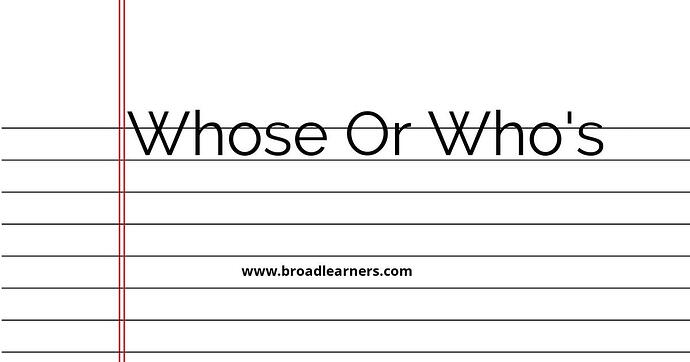'Whose' and 'who's' are commonly confused words in English grammar. Understanding the difference between 'whose' and 'who's' is important to use them correctly in written and spoken English.
'Whose' is a possessive pronoun that indicates ownership or belonging. It is used to ask about or indicate the person or thing something belongs to.
'Who's' is a contraction of 'who is' or 'who has'. It is used to ask a question about someone's identity or to define someone's actions or characteristics.
Let's take a closer look at the meanings and usage of 'whose' and 'who's'.
| 'Whose' | 'Who's' |
|---|---|
| The word 'whose' is used to indicate possession or ownership. | The word 'who's' is a contraction of 'who is' or 'who has'. |
|
|
To remember the difference between 'whose' and 'who's', it can be helpful to remember that 'whose' has the word 'who' in it, indicating possession, while 'who's' is a contraction of 'who is' or 'who has'.
Here are some examples of correct usage:
- Whose book is this? (asking about ownership)
- Who's going to the concert? (asking about someone's plans)
- I wonder whose idea it was to start this project. (indicating ownership)
- Do you know who's the CEO of that company? (referring to someone's position or title)
Remembering the correct usage of 'whose' and 'who's' will improve your grammar and communication skills.
